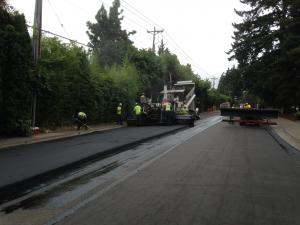- YourGovernment
-
OurCommunity
-
- About Tualatin Advisory Committees Animal Services Community Involvement City Codes City Council City Projects
- Community Crime Reports Customer Service Request Explore Tualatin Now Fire Library Municipal Court Tualatin Today
- Parks & Recreation Passports Permits & Forms Planning & Zoning Police Volunteer Tualatin Moving Forward
-
-
ForVisitors
-
- Parks, Greenways, Recreation and Library Library Parks Public Art Parks and Recreation
- Shopping, Dining, and Entertainment Chamber of Commerce
- Community Events Community Theatre Pumpkin Regatta Special Events
-
- DoingBusiness
-
HowDo I?
-
- Apply for a Job Apply for an Advisory Committee Contact the City Council Get a Copy of a Police Report File a Records Request Find Forms
- Find Planning & Zoning Find Public Transportation Find the City Code Get a Business License Get Email Subscriptions/Notifications Locate City Offices
- Contact the City Pay My Traffic Fine Pay My Water Bill Reserve a Facility Sign Up for a Recreation Program Search the Website Volunteer
-
Pavement Maintenance Program
The Streets Division is responsible for just that - maintaining City streets in Tualatin. Each year the City of Tualatin maintains streets through a variety of pavement maintenance methods. This preventative maintenance greatly extends the life of the pavement surface so that the complete reconstruction of the street is not necessary for many years.
2024 Pavement Maintenance
The 2024 Pavement Maintenance Program will follow the schedule below (weather permitting). Click on this map to see this year's planned maintenance.
- Week of June 10th – Crack seal
- July 24 - 26th – Slurry seal
Types of Pavement Maintenance
Full reconstruction is digging out the existing road completely and laying new sections of base rock and asphalt. This is the bee's knees of road repair but it is also the most expensive option. We save this for roads that are totally gone. ($$$$)
An overlay is a replacement of the top layer of the road. Typically 1.5” to 2” thick. This improves the smoothness of the road and its structural strength. Pretty much as good as a new road and a bit more doable than a full reconstruction. ($$$)
Slurry seal is a sticky tar-like substance (made up of asphalt oils, water, and rocks) that seals the surface much like a coat of paint. This is similar to a seal coat but lasts longer and holds up better. We typically use this in lower-traffic residential areas. ($$)
- You'll want to stay off this until it's lost its shine and is completely dry. It will get all over your car, shoes, skin, kids, dog, etc. and is a huge pain to clean. Plus, we have to redo the road causing longer interruption to your neighborhood.
- If in doubt about whether or not it's dry, wait until we open up the road (removing barricades and signs) or give us a call to confirm if you can drive, walk, or roll on the freshly sealed street.
Seal coat is also a sticker tar-like substance made up of oils and rocks, but thinner than the slurry seal. It is used to protect the road from sun damage, kind of like sunscreen. We typically use this in low traffic areas because it is thinner and doesn't hold up well to lots of traffic as a slurry seal. ($$)
- Same as the slurry seal - you'll want to stay off this stuff until it has lost it's shine and is completely dry. It will get all over your car, shoes, skin, kids, dog, etc. and is also a huge pain to clean up.
- Same as above, if in doubt about whether or not it's dry, wait until we open up the road (removing barricades and signs) or give us a call to confirm if you can drive, walk, or roll on the freshly sealed street.
Crack seal is a rubber seal applied over existing cracks in the pavement to prevent moisture from getting in and increasing the size of the pavement opening. This is the cheapest type of treatment we can apply. ($)
- This stuff dries pretty quick and is less problematic than the other seal treatments above. Just be sure to follow signs and employees directing traffic.
For additional questions, contact Streets/Sewer/Storm Manager Bert Olheiser by phone at 503-691-3096 or by email at bolheiser@tualatin.gov.

